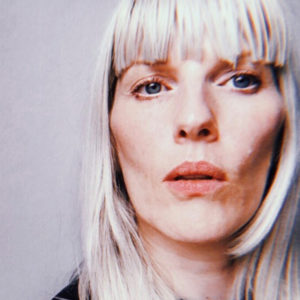
Wendy Erskine was shortlisted for her collection, Dance Move. She lives in Belfast. Her debut collection, Sweet Home, was published by The Stinging Fly Press in Sept 2018 and Picador in 2019, has been translated into Italian and Arabic and optioned for TV. It won the 2020 Butler Literary Award, was shortlisted for the Edge Hill Prize 2019 and longlisted for the Gordon Burn Prize 2019. The story ‘Inakeen’ was longlisted for the Sunday Times Audible Short Story Prize 2019. Sweet Home was Book of the Year in the Guardian, The White Review, Observer, New Statesman, and TLS.
For you, what is the most difficult aspect of writing?
The most difficult aspect for me, I think, is finding the time. I work as a head of department in a secondary school and that, as you can imagine, is something that occupies me quite substantially. I have a respect for anyone who is trying to write, or do anything creative really, while also managing a full-time job, or being a carer, or looking after children, or coping with illness. It means that you can never afford to be too precious about writing; it’s just one of those things you should do whenever you can, be that a spare half hour here and there. I really enjoy writing. I’m not a member of the ‘oh writing is so terrible and agonising yet I’m compelled to do it’ brigade. If it’s genuinely dreadful for you, do something else. Because baby, there are so many other things out there.
There is an assumption that the first story in a collection should be the strongest or the most accessible/entertaining, that it should act as a hook. What are your thoughts on this?
That presupposes the fact that people read the stories in order. I know that I certainly don’t. I’ll choose at random, or I’ll pick one with a title that takes my fancy from wherever in the book. There’s certainly a logic, I suppose, in avoiding having a not-very-entertaining and weak story as the first one. But why would a story like that be in a collection anyway? I’m interpreting ‘entertaining’ broadly here, as meaning engaging. Accessibility is something different, I think. It depends entirely on the writer and their stories. For some, the fact that they are not immediately accessible is a feature of the brilliance of their writing.
Out of all the characters in your collection, which one would you like to spend more time with and why?
There’s a character called Linda in Secrets Bonita. At one point she is sitting, watching her husband, Ritchie, on the dancefloor, getting kind of inappropriate with his boss’s wife. He is doing this because he has a real problem with men in authority, as a result of what happened to him whenever he was young. I would like to sit beside Linda and touch her lightly on the arm, to let her know – unlike the others that are around her – that I understand what is happening. And then we would go to the toilets to do our hair and make-up and I would tell some dopey story about something that I’d done wrong that day to make her laugh. If her friend Rae couldn’t make it for their regular takeaway on a Friday night, I could go round.
If you had to write a manifesto for writing short stories, what would be your first declaration?
You tell short stories every day of your life in your conversations with people and in the things you tell yourself, so you already know how to do it.
In terms of description, how do you decide what to put in and what to leave out?
Everything has to contribute to the reading experience of the story being a satisfying one and if the description is necessary then it should be kept in. That said, I tend not to go overboard on it: just a few key details. One of the things I love about the short story is that there can be all these gaps or lacunae or whatever you want to call them, and a reader can be co-opted to fill these spaces with their own details. It makes for a creative writer/reader partnership.
After finishing a story, how do you feel? Do you celebrate?
One of the reasons I like writing short stories is that I am on a real high every time I finish one. You know the final stanza of Plath’s ‘Ariel’? The one where the arrow flies into the red eye, the cauldron of morning? No word of a lie, I feel like that. Euphoric, powerful, optimistic. I would maybe have a nice drink. And then I would just get on with, oh I don’t know, something mundane and downbeat.
